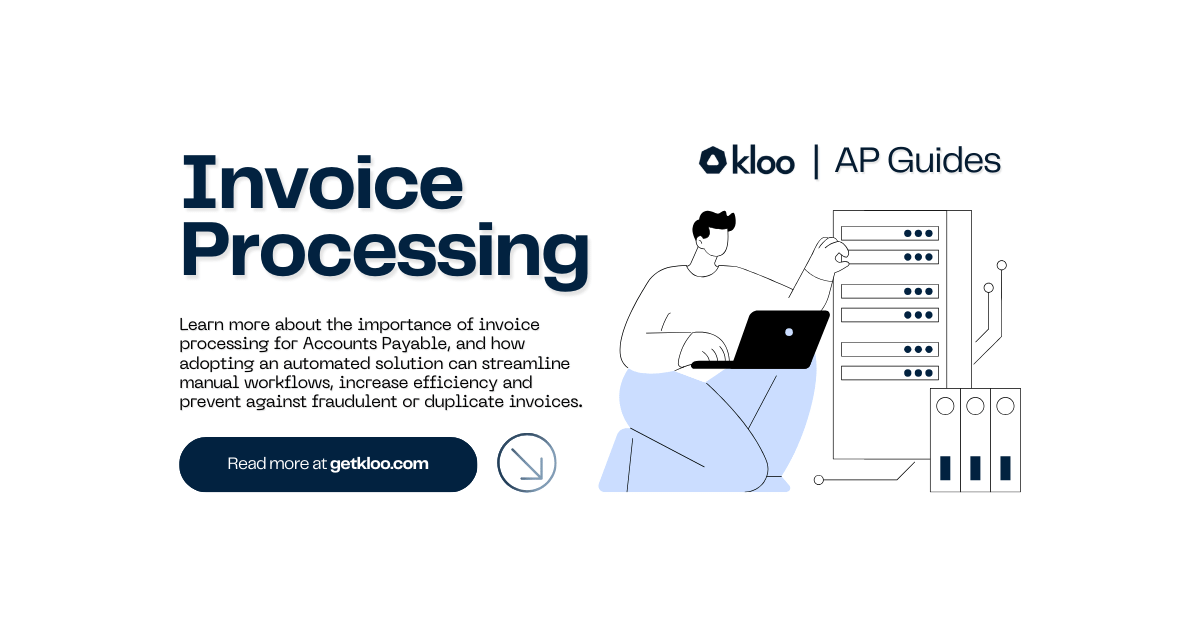What is an Invoice Approval Workflow and Is It Necessary?
In this blog post, we will explore the critical components of an invoice approval workflow and why it plays a key role in effective invoice management. This workflow is a structured process that ensures all invoices are thoroughly reviewed, matched, and approved before payment, helping to safeguard businesses from errors, fraud, and unnecessary expenditures. We will also discuss how automation can enhance the invoice approval process, streamline accounts payable operations, and contribute to better financial management.
What is an Invoice Approval Workflow?
At its core, an invoice approval workflow is a standardised series of steps required before a company pays a supplier invoice. This process includes verifying the supplier, checking quantities received, performing 2- or 3-way matching, and senior finance team members signing off on the purchase.
The point of this rigorous process is to safeguard your business against a host of potential pitfalls. By thoroughly scrutinising and authorising invoices, this workflow helps to catch errors, prevent fraudulent activities, avoid unnecessary or duplicate expenditures, and ensure there is a clear audit trail for every purchase. Essentially, it acts as a protective barrier, ensuring that only legitimate and accurate invoices are processed for payment.
What Does an Invoice Approval Workflow Actually Look Like?
An invoice arrives at your company, usually as an email attachment. Here’s what happens next:
- Invoice Arrival: The invoice lands in your inbox.
- Invoice Upload: It gets uploaded to your Accounts Payable (AP) system or directly into your Enterprise Resource Planning (ERP) system.
- Legitimacy Check: The details are scrutinised for accuracy and any signs of fraud.
- Matching: The invoice undergoes a 2- or 3-way matching process, depending on your company's protocols.
- Internal Approval: The invoice is routed to internal finance stakeholders, such as the CFO or financial controller, for approval.
- Payment Queue: Once approved, the invoice is queued for payment.
Are Invoice Approval Workflows Really Essential?
The necessity of an invoice approval workflow can vary. The initial stages—uploading, fraud checks, and matching—are indispensable best practices for managing invoices.
However, the need for a finance executive to approve each invoice before payment can be dependent on preceding processes. Companies with robust purchase order systems might find this step redundant and opt for auto-approvals of invoices that match pre-approved purchase orders. Ultimately, it boils down to the preferences of a company and their finance team.
How Can Automation Transform This Process?
Automation can significantly enhance the invoice approval process. Tools like Kloo's Smart Invoice Inbox offer advanced solutions:
- Automatic Identification and Data Extraction: As soon as an invoice is received, it’s automatically identified as an invoice or credit note, and data is extracted using advanced Optical Character Recognition (OCR) technology.
- Fraud Checks: Automated fraud checks are performed, cross-referencing the invoice data with existing information to ensure everything checks out.
- Automated Upload: The invoice is then uploaded to the Kloo platform and ERP system.
- Automated Matching: Depending on your preference for oversight, you can have AI-suggested matches that you review or fully automated matching.
- Approval Workflow Assignment: Based on pre-configured rules, Kloo assigns the invoice to the necessary approver(s) based on factors such as the invoice amount.
The Impact of Automation
Automation transforms several manual steps into a single automated process, significantly increasing efficiency in invoice management. By reducing the time spent on repetitive tasks such as data entry, manual matching, and approvals, businesses can process invoices much faster, enabling quicker payment cycles. This not only improves cash flow management but also fosters better relationships with suppliers by ensuring timely payments. Suppliers are more likely to offer early payment discounts to businesses with efficient invoice processing, which can translate into cost savings.
Moreover, automation helps avoid late payment penalties, ensuring that invoices are processed and paid within the agreed terms. Automated systems can also send reminders for upcoming due dates, preventing any overlooked invoices that might otherwise incur penalties.
Another critical advantage is scalability. As businesses grow, so does the volume of invoices they handle. Manual processes can become overwhelmed by the increasing workload, leading to delays and errors. Automation allows companies to handle this growth seamlessly without needing to hire additional staff or overburden their AP teams. This scalability ensures that the invoice approval workflow remains consistent and efficient, regardless of how many invoices are being processed.
Additionally, automation brings enhanced accuracy and compliance by reducing human error, which is common in manual invoice processing. Automated systems perform real-time checks and validations, ensuring that invoices meet the required criteria before progressing to the next stage. By adhering to these automated checks, businesses can maintain more accurate financial records and ensure compliance with internal policies and external regulations.
Finally, automation provides a wealth of data insights. Businesses can track key performance metrics such as invoice processing times, approval bottlenecks, and payment statuses in real-time. These insights allow companies to continuously refine their processes, optimise efficiency, and make informed decisions that contribute to their overall financial health and growth.
The Bottom Line
In summary, a well-structured invoice approval workflow is essential for maintaining accuracy, preventing fraud, and ensuring a smooth audit trail. While the specific components may vary based on business needs, the initial stages of upload, fraud checks, and matching are universally crucial.
Embracing automation technologies, can transform manual, time-consuming tasks into efficient, streamlined operations, significantly enhancing overall business efficiency and financial management. By integrating invoice automation software and tools like Kloo, businesses can optimise their accounts payable processes, strengthen their financial health and supplier relationships, and pave the way for scalable growth and long-term success.
To find out more about our offering for automated invoice management, visit our product page.
Let's get started

